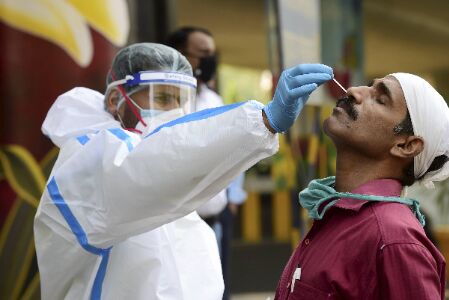Unwavering vigilance

Even though we are very much in the grip of one pandemic, there is already widespread discussion regarding the next possible pandemic. This is not merely a show of ill-timed pessimism meant for fear-mongering. The idea is to reflect on that the threat of pandemics does not end with COVID-19 and that lessons learnt here will be critical in fighting the next pandemic when it inevitably comes in whatever shape and form. Microsoft founder and well-know philanthropist Bill Gates has publicly stated that he does not believe we are ready for the next pandemic which could well be 10 times worse than this one. He claims that the world is not spending enough to effect any real preparation. Gates estimated that stopping the next pandemic would require ongoing investments of tens of billions of dollars per year. This may seem like a lot but it is important to note that the current estimate of global expenditure for COVID-19 sits somewhere around USD 28 trillion. Gates, like many others, believes that pandemics are only going to become more common and frequent. COVID-19 is just one epidemic of many that are increasingly showing up at a time of globalisation, urbanisation and significantly, climate change. In our interconnected age, billions of people travel overseas and the flow of materials and goods is endless. As researchers have stated, in most cases, it would only take a maximum of 36 hours for an infectious outbreak to move from a remote village to a major metropolitan city, sparking another pandemic. Clearly, the answer is not for us to shut down our systems of trade and travel that we have developed in the modern world. Indeed, it would not be a stretch to say that a nation cannot navigate the biggest crises of the modern-day by itself. The solution lies in a much more involved action plan that goes beyond our medical systems and experts. It will involve a combined effort of conscious will that starts at the highest echelons of power in the government and goes down to the actions of individual, ordinary people. As John Oliver highlighted in the latest episode of 'Last Week Tonight', our world has an unfortunate tendency to slip up on vigilance the moment we are out of apparent danger. As a society and as an individual, we become lax once a pandemic is done and go back to doing pretty much the same things that cause these outbreaks in the first place. Unsustainable urbanisation creates a risk of overcrowded and unhygienic environments. Increased human-animal contact for a variety of reasons is bringing us in contact with a host of contagion that we have never been exposed to before. Climate change is altering the spread of certain diseases like malaria while also increasing the risk of waterborne diseases. Finally, add to all this the critical shortages in health care infrastructure that COVID-19 has made apparent and it is easy to see how we have always been sitting on a powder keg moving closer to the fire.
Already there are reports of an outbreak of Ebola in Guinea and the Democratic Republic of Congo with a risk of spreading to the entire West-Africa region. Ebola is hitting the region at a time when the system is already taxed dealing with COVID-19 and did not have a well-developed capacity in the first place. There are fears of Nipah virus from bats, Mers from camels, swine flu from pigs, the list is endless and all of it is happening at teh same time.
Again, it is important to emphasise that the point here is not panic-mongering. The point is to warn against complacency. Our battle against disease does not end with this pandemic and a successful vaccination campaign. There is a need for a much more global and widespread effort to combat and manage the underlying factors that control the spread of diseases. No one solution will be enough.



